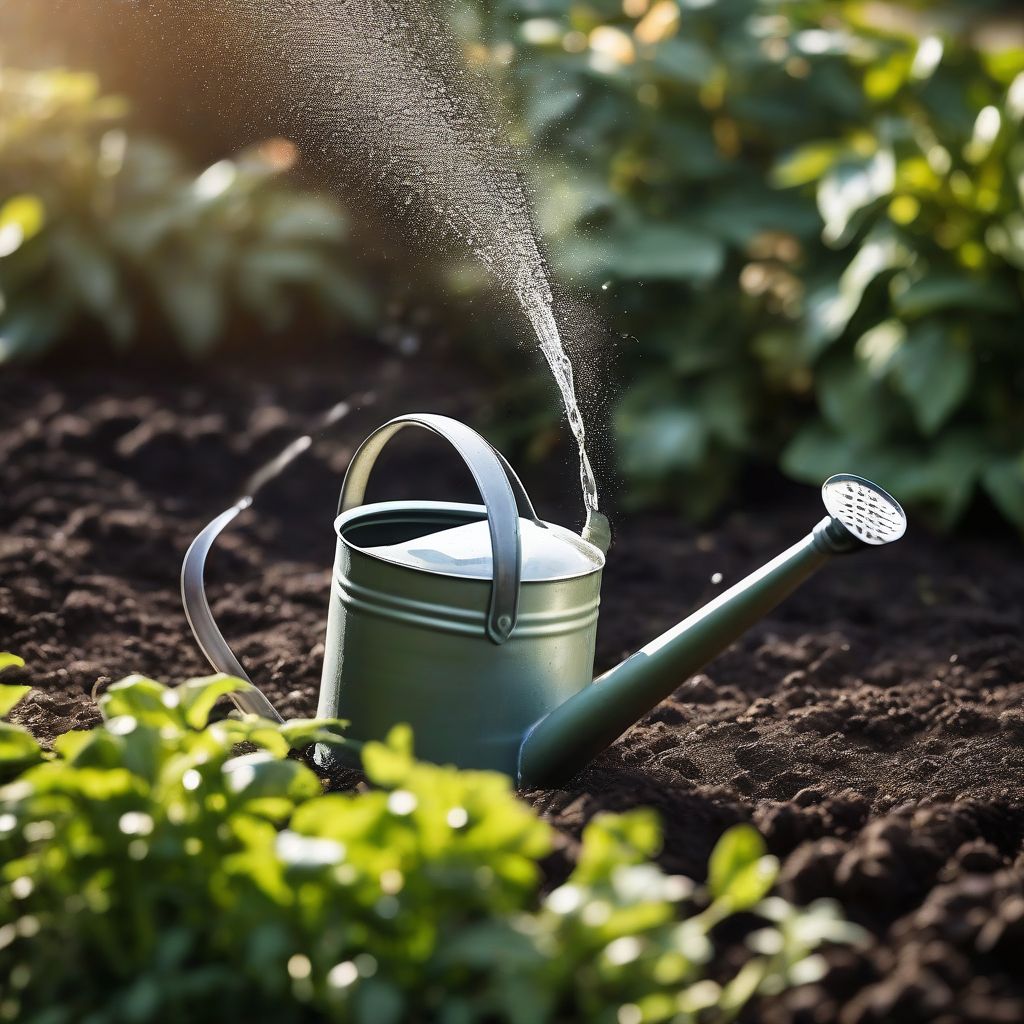As a nutritionist, I know a thing or two about the importance of proper hydration – not just for us, but for our leafy friends in the garden too! Just like we thrive on a balanced intake of water, our gardens need the right amount of moisture to flourish and produce delicious, healthy food. Watering efficiently isn’t just about conserving water; it’s about giving your plants what they need to thrive. Let’s dive into some expert tips for watering your garden effectively and watching it blossom.
Understanding Your Plants’ Water Needs
Just like humans, not all plants are created equal when it comes to thirst. Factors like plant type, soil composition, and even the weather play a crucial role in determining how often and how much to water.
Know Your Soil Type
Think of your soil like a sponge. Sandy soil drains quickly, while clay soil holds onto moisture for longer periods. Knowing your soil type will help you determine how often to water and how much water your plants actually need. A simple soil test can provide valuable insights.
 Watering can and soil
Watering can and soil
Listen to Your Plants
Plants are excellent communicators – you just need to know the signs! Wilting leaves are often a clear indication of thirst, while droopy or yellowing leaves can signal overwatering. Take the time to observe your plants regularly and adjust your watering schedule accordingly.
Timing is Everything: Best Practices for Watering
Watering your garden effectively goes beyond simply drenching the soil. It’s about delivering moisture at the right time for optimal absorption and minimal waste.
Water Deeply and Less Often
Deep watering encourages deep root growth, making your plants more resilient to drought conditions. Instead of frequent, shallow watering, water your garden deeply and less often. Aim to water until the top 6-8 inches of soil are moist, allowing the water to penetrate deep into the root zone.
Embrace the Morning Routine
Watering in the early morning allows your plants to absorb moisture throughout the day, minimizing evaporation and reducing the risk of fungal diseases. Plus, it’s a great way to start your own day!
Avoid Midday Watering
Watering during the hottest part of the day is like throwing water into a furnace – much of it evaporates before it even reaches the roots. If you must water during the day, try to do so in the late afternoon when the sun is less intense.
Smart Watering Techniques for a Thriving Garden
With a few smart strategies, you can maximize your watering efficiency and ensure your garden receives the hydration it deserves without wasting this precious resource.
Mulch is Your Garden’s Best Friend
Applying a layer of organic mulch around your plants acts like a protective blanket, conserving soil moisture and suppressing weed growth. Think of it as giving your plants a refreshing drink that lasts!
Invest in a Rain Barrel
Collecting rainwater is an eco-friendly way to irrigate your garden. Rain barrels capture and store rainwater from your roof, providing a free and readily available source of water for your plants.
Drip Irrigation: Targeted Hydration
For targeted watering directly to the roots, consider using a drip irrigation system. This method delivers water slowly and efficiently, minimizing evaporation and reducing the risk of overwatering.
Conclusion
Watering your garden efficiently is a rewarding practice that benefits both your plants and the environment. By understanding your plants’ needs, implementing smart watering techniques, and embracing a little bit of garden wisdom, you can cultivate a thriving and productive garden while conserving this precious resource. Now go out there and give your plants the hydration they deserve!
Do you have any favorite watering tips or tricks? Share them in the comments below!
[amazon bestseller=”garden-watering”]
